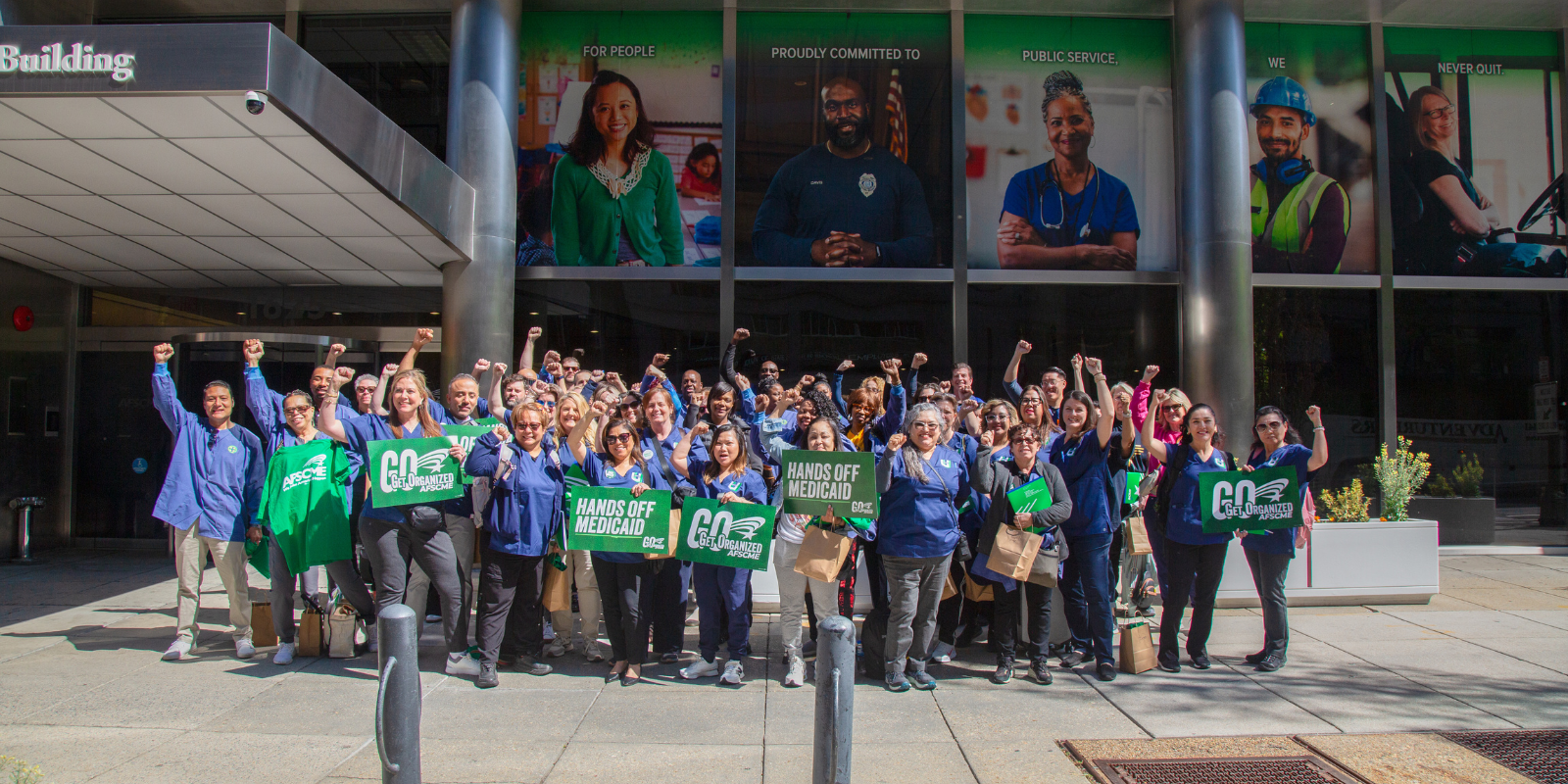Kadi Gonzalez has been a registered nurse for more than two decades. She speaks most passionately about caring for her 13-year-old son, Anthony.
Anthony is neurodiverse and is “thriving,” according to Gonzalez. She thanks the Medicaid-funded services he receives. A few years ago, he was struggling at school and had few friends. Now, Gonzalez says, Anthony is a straight-A student with an active social life.
But Gonzalez worries that the services that have transformed her son’s life and the lives of countless others around the country will disappear.
Fighting for Medicaid in the halls of Congress
Gonzalez, a member of UNAC/UCHP, is one of nearly 70 AFSCME nurses and other health care professionals who traveled to Washington, D.C., last week. Members of NUHHCE and District 1199J, in addition to UNAC/UHCP, came to tell their members of Congress to protect Medicaid.
These health care professionals brought more than just expertise on the medical needs of America’s most vulnerable families. They shared personal stories of how the cuts would affect the people they serve.
Their visit came as the White House’s allies in Congress gear up to begin making deep budget cuts, starting next week. These anti-union extremists and the administration think nothing of slashing public services and vital programs like Medicaid and Social Security. Their goal is to give their billionaire buddies even bigger tax cuts.
AFSCME members visited their elected officials in the House and Senate to demand that they stop a proposal to cut $880 billion in Medicaid cuts. These professionals work in every kind of facility: emergency rooms, intensive care units, residential care clinics, surgery centers, schools and home care.
Gina Yarborough, a physical therapist with UNAC/UHCP, told staffers in the office of California Sen. Alex Padilla about a patient who was born with defects in her feet. As a child, the patient had life-changing surgery funded by Medicaid that helped her live with fewer limitations.
“Without that investment upfront,” Yarborough said, “these children will face ongoing challenges that could have been prevented.”
“If we get rid of Medicaid,” added Vicky Navarro, another UNAC/UHCP nurse, these patients “will have nowhere to go.”
Cutting Medicaid will have long-term effects
The health care experts pointed out how much these cuts will cost Americans in the long run.
Patricia Garcia, an 1199J nurse at a New Jersey mental health center, pointed out that Medicaid helps patients afford low-cost treatments that prevent much higher costs the state would have to bear later.
“Medicine is cheap,” she said in the office of New Jersey Sen. Cory Booker. “Putting someone in the hospital for 20 days is expensive.”
The nurses and health care professionals also recognized that Medicaid cuts would hurt their ability to serve people. They spoke about staff shortages, layoffs and even hospital closures, which would leave many communities without basic health care.
Medicaid cuts are also an attack on public service unions like AFSCME, as they will force across the board service cuts in most states.
Jamie Hirsch of 1199J pointed this out in the meeting with Booker’s staff.
“I worry about the security of our union,” Hirsch said. “We have a lot of members employed because of Medicaid.”
Fight back. Get Organized
The visit was part of AFSCME’s Get Organized campaign to fight cuts to essential programs such as Medicaid, Social Security and Medicare. Anti-union extremists and the Trump administration want to slash vital federal programs to fund even bigger tax cuts for billionaires and corporations.
We won’t let them hurt working people, retirees and vulnerable Americans so the rich can prosper even more. Let’s Get Organized. Let’s GO.
